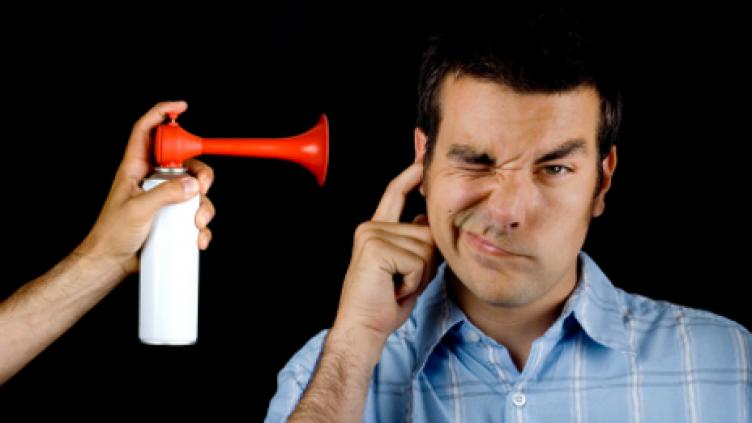
Advice to Bands Re: Protecting your Hearing
Introduction
You may have read about the recent landmark High Court case involving a Violist who suffered life-changing hearing loss at a rehearsal of Wagner's Die Walküre in 2012. The case against the Royal Opera House (ROH) was won in March 2018 and will no doubt have huge implications for the music industry regarding the health and safety of professional and amateur musicians alike. Brass Bands are loud - there’s no getting around it - and we at Brass Bands England want to be able to provide bands with the best possible advice on the matter, so that you can protect yourselves and enjoy making music together as a band. Losing one's hearing can happen to anyone at any time and at any age. Our ears are precious things which, once damaged, may never recover. This can be particularly distressing for musicians. From Beethoven to Coldplay's, Chris Martin; many musicians have been affected by damage to their hearing and sometimes this can be caused by musical activity.
The Facts
‘Safe’ hearing levels (about conversation level) are around 60 decibels. Hearing damage is predominantly linked to a) sustained exposure to high noise levels or b) loud transients. A Brass Band can play at well over 120 decibels, and being exposed to more than 89 decibels for more than 5 hours a week will induce hearing damage over time, therefore protection and prevention of damage is vital to the health of your ears. Whether you are hard of hearing, looking to protect your hearing for the future or trying to ensure none of your band members come to harm, here is our best advice about how to protect your ears.
- Be self-aware
Have an annual hearing test to check the level of your hearing and keep on top of any changes. If you notice yourself turning up the volume up higher and higher on your TV/Radio, or if you hear any buzzing, ringing or anything else unusual - visit your audiologist. After a performance or rehearsal be sure give your ears a rest from loud sounds and encourage your band members to do the same. You can check your hearing and find out more information on hearing loss here.
- Speak to your Musical Director
Don’t suffer in silence. If your hearing is affecting how you play, make sure you speak to someone. They might think about band positioning/set up to make things easier for you or making modifications to your rehearsal space to absorb the sound better. It could even be a question of rehearsing below marked dynamics or avoiding very loud repertoire if/when rehearsing/playing in particularly boomy acoustics. Your Musical Director and band Committee should be aware of safe levels and how to limit damage to hearing, particularly in a loud instrumental group. If they aren’t yet aware, bring this guidance to their attention and ask them to read it. The BBC’s ‘Musician’s guide to noice and hearing - toolkit for managers’ it contains a lot of useful guidance on what they/ you can do to understand and work safely with sound.
- Use ear plugs
There is a wide variety of personal hearing protection devices on the market and more and more people are becoming aware and using them. Basic ones will just cancel out sound, but attenuated ear plugs just cancel damaging frequencies, allowing you to still hear the music. The idea is not to inhibit your ability to hear music, but to protect your cochlear from the damaging frequencies. Google ‘attenuated ear plugs’ to explore the options; with ‘off-the-peg’ ear plugs available and custom fit ones to suit all budgets (prices start from around £2 per pair). It might be worthwhile, as a band, buying a cheap tub of single use ear plugs in bulk and making sure your band members are aware of where they are if they feel they need some.
- Ask your group to invest in sound barriers
Acoustic screens protect hearing by reflecting or absorbing sound. These are often used by professional musicians and can be quite expensive. You may like to start a fundraising project if this is something that you feel your group should invest in; it is a good thing to fundraise for as it is a tangible object that people can see the benefit from. Other (and cheaper!) things you could invest in to dampen the sound in your rehearsal space include: Foam curtains, cardboard egg boxes/takeaway drinks holders to stick on the walls, foam tiles etc. There is a lot of useful information out there on safe levels and how to achieve them in music see Sound Advice.
- Adjust your Hearing Aids
If you do wear hearing aids when you are playing or listening to music it can be a case of trial and error. There is a lot to get used to and some people find that they can actually hear music better without their hearing aid in as standard aids often cannot deal with the complexities and varying frequencies of music. There are things that you might be able do to the settings if yours doesn’t have a music program:
- Extend the frequency
- Disable the frequency manager
- Disable the noise reduction
You can find out more about hearing aids and hearing loss from www.hearinglink.org.
- Public Liability Insurance
To play it safe, we would advise you to make sure that your bands Public Liability Insurance is up to date (which we would advise anyway!). N.B. There isn’t yet any regulation in place regarding amateur music making. BBE are seeking legal advice about this and will report back to members as soon as we can.